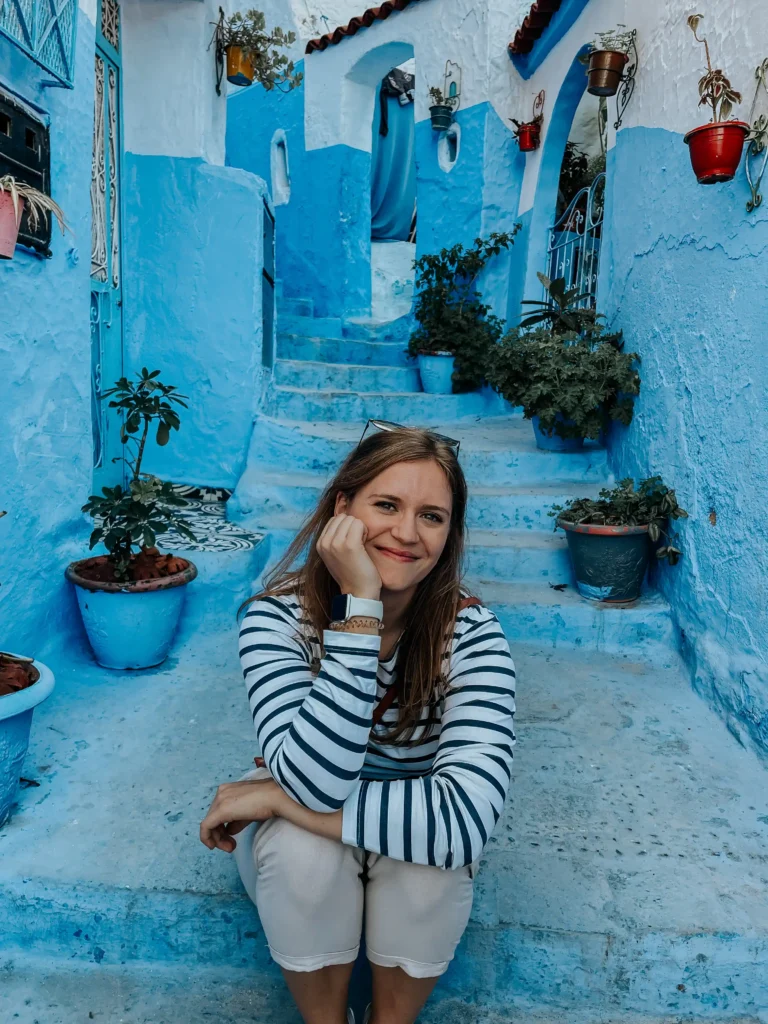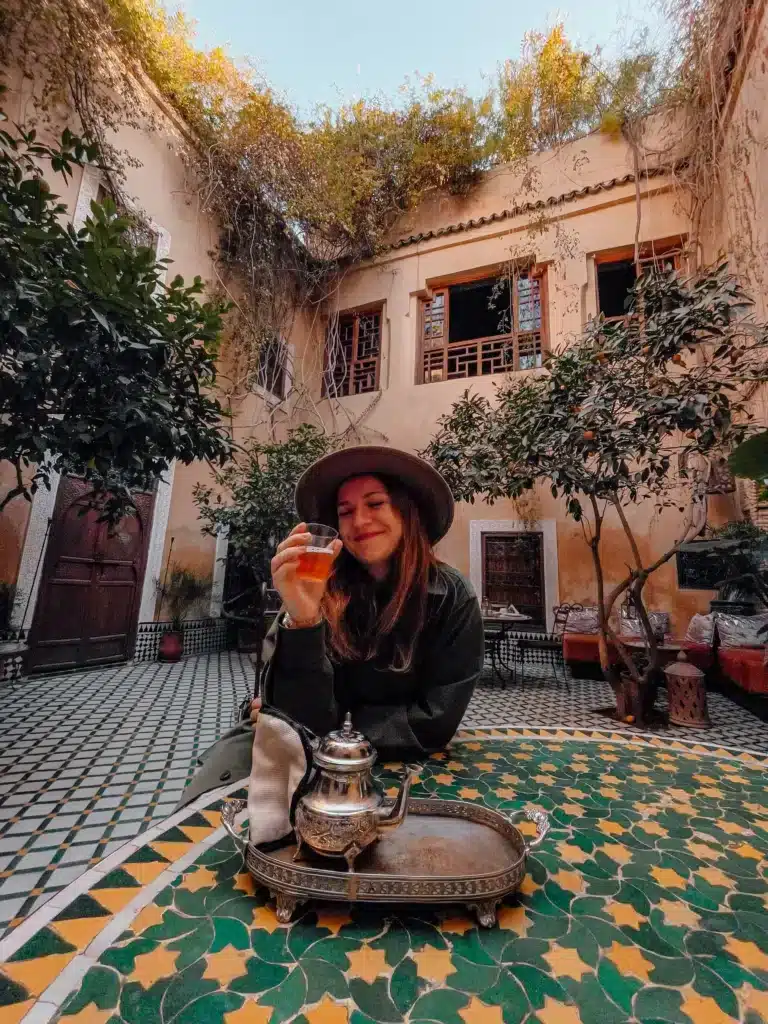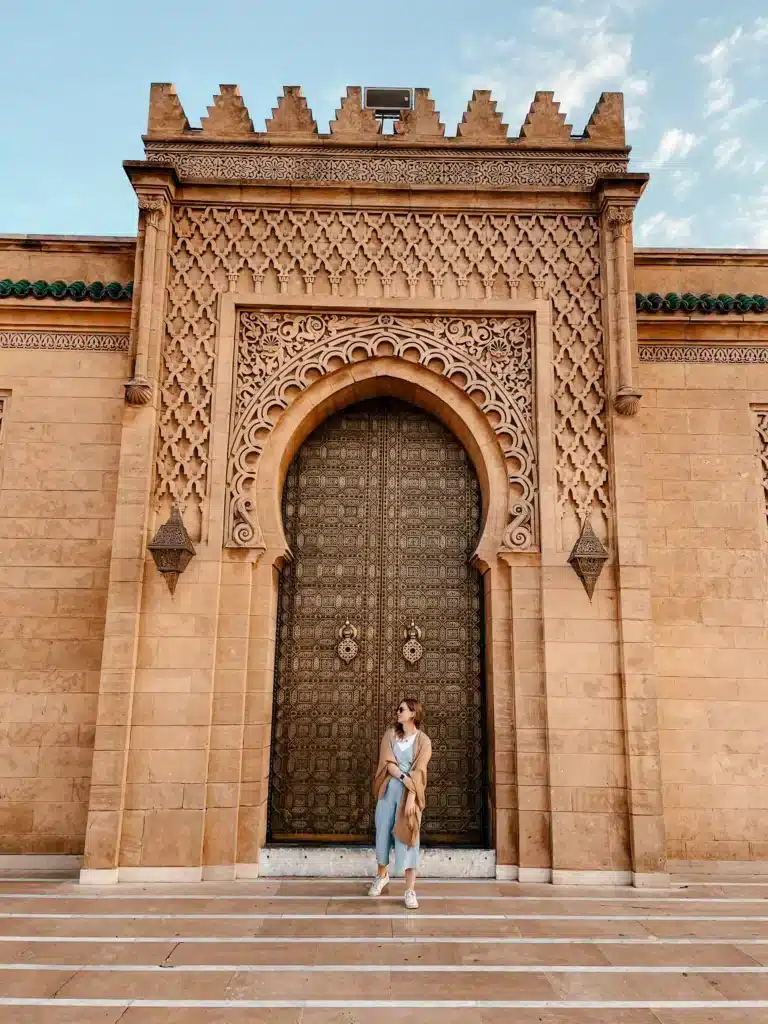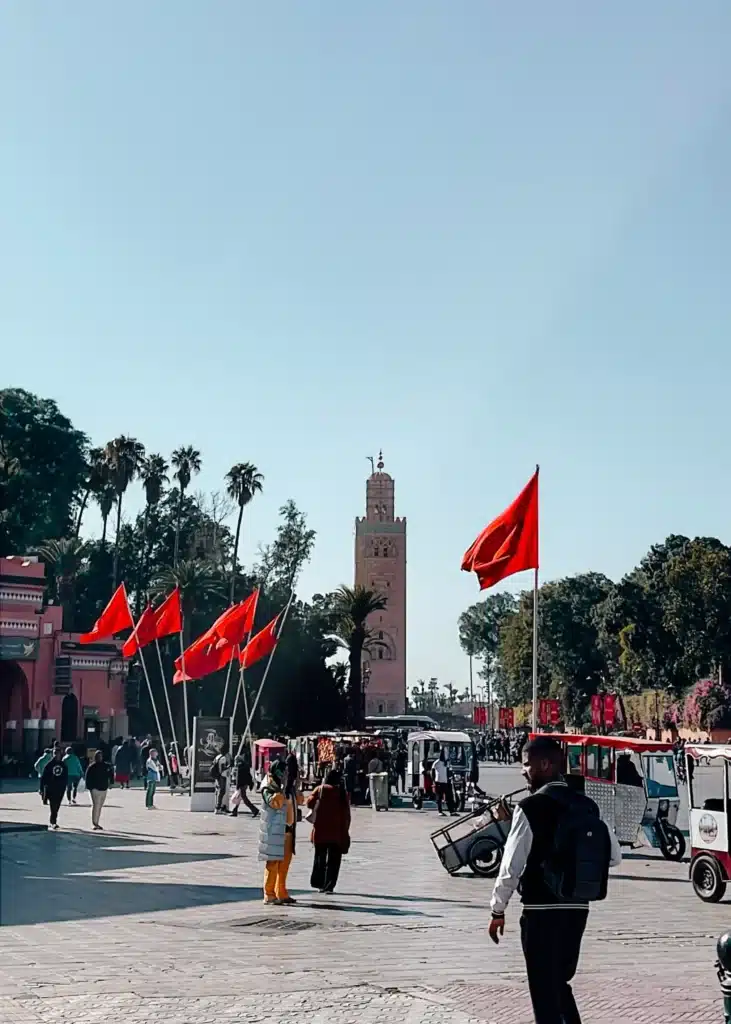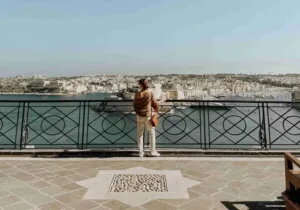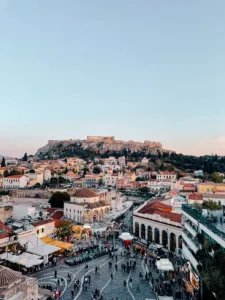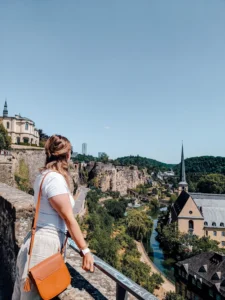I love a good road trip, but when planning our trip to Morocco, we weren’t sure if driving was the best idea. Is it safe? What are the roads like? How hard is it to navigate parking in cities? After speaking with Moroccan friends and doing plenty of research, we decided to go for it—and trust me, our Morocco road trip did not disappoint!
If you’re debating whether a Morocco road trip is the right choice for you, this guide will walk you through everything you need to know about driving in Morocco. From renting a car to navigating the highways and parking in cities, I’ll share my personal experience along with practical tips for first-time visitors and tourists.
Our road trip was a huge part of what made our time in Morocco so memorable. I hope this guide gives you the same experience and the confidence to head out on your own Morocco road trip! If you have any questions or if I’ve missed something, feel free to drop them in the comments below—I’m always happy to help!
*Disclosure: This article contains affiliate links. If you make a purchase after clicking one of these links, I earn a small commission at no extra cost to you.
Morocco road trip: FAQs
Is Morocco a good country for a road trip?
Absolutely! From personal experience, I can confidently say Morocco is a fantastic road trip destination. Driving around Morocco was manageable and gave us the flexibility we needed to make the most out of our itinerary. We didn’t have to rely on public transportation schedules to get to our destinations and we could come and go as we pleased Plus, the stunning landscapes made the drive even more enjoyable!
Whether you’re heading to the Sahara Desert, the Atlas Mountains, or the coastal towns, a road trip is one of the best ways to experience Morocco – I detail more about my personal experience below.
Do I need a visa to enter Morocco?
For stays under 90 days, residents of about 70 countries—such as Canada, the EU, the US, and Australia—do not need a visa to visit Morocco. However, you must ensure your passport is valid for at least six months from your date of entry.
If you do require a visa, Morocco offers an e-visa application process that seems to be quite simple. You can apply online and pay approximately 770 Moroccan Dirhams (~72 euros). You can refer to Morocco’s official website to learn which countries require a visa.
Is it safe to drive in Morocco?
Yes, from personal experience it’s safe to drive in Morocco as a tourist, and we encountered no significant issues during our trip. That said, driving in the cities can be chaotic and stressful, so it’s worth planning your routes to minimize city driving when possible. Outside the cities, the roads are often scenic and well-maintained – I wouldn’t shy away from a Morocco road trip, we found it to be one of the best ways to experience the country!
If you’re feeling nervous, don’t worry—I’ve shared some tips below to help you feel more prepared for driving in Morocco.
Do you need an International Driver’s Permit (IDP)?
This was one of the most confusing topics we encountered while planning our Morocco road trip! In general, an International Driver’s Permit (IDP) is not required in Morocco. An international driver’s permit (IDP) acts as a translation of your home country’s driver’s license, so that if there is ever a problem while in a foreign country, you have a translation available.
Most car rental companies only ask for your valid driver’s license from your home country, as long as you’ve had it for at least one year. This varies depending on your rental company, so confirm what they require with them directly.
That said, as an anxious traveler, I chose to get an IDP for peace of mind. It wasn’t expensive or difficult to get, and while our rental company and the police at checkpoints didn’t ask for it, having one made me feel more prepared.
If you’re like me and like to be on the safe side, you can easily get one from CAA for Canadian citizens and American citizens can get them from AAA. An IDP is valid for one year and you will have to pay a small fee.
How many days in Morocco are enough?
Your Morocco itinerary length truly depends on what and how much you want to see! Look at your bucket list – this will really impact your ideal itinerary length. From the bustling streets of Marrakech to the historic souks in Fes and the iconic blue streets of Chefchaouen, decide what you’d like to experience and plan accordingly!
A trip to Morocco can be easily accomplished in 7 days (great for visiting a specific region), 10 days (perfect for visiting a mix of cities and natural gems), or 20 days (best length for a deep dive into many regions in Morocco) – again, it all depends on what you want to see. Keep in mind that Morocco is larger than it seems, so plan extra time for travel between destinations.
YOU MIGHT ALSO LIKE: 2-week Morocco itinerary for first-timers
Morocco road trip: what’s it like driving in Morocco
Some general road rules for driving in Morocco:
- 🚗 They drive on the right side of the road
- 👧🏼 The minimum age to drive is 18 years old
- 📱 It is not allowed to use a mobile phone while driving and seatbelts are mandatory
- 🪪 Always have your driver’s license and passport with you
- 🏎️ Speeding rules are strict (more on that below)
You don’t need to rent a specific type of car
When choosing our rental car, we were unsure of whether or not we needed a ‘heavy-duty’ car to drive in Morocco. Unless you’re plan to do some adventurous off-roading in the desert, you shouldn’t have to worry about the type of car you rent in Morocco. Even on mountainous roads, we were perfectly fine with a standard Dacia model.
PRO TIP: We booked our car rental with rentalcars.com and consistently find the best deals there for road trips.
Inspect your car before you leave the car rental agency
This is best practice for any time you rent a car – always inspect your car thoroughly before leaving your car rental agency. We had heard before we left for our Morocco road trip that its a common for rental agencies to attempt charging you for pre-existing damages on your rental car. The best way to protect yourself is to not only take photos, but take a video of your car’s exterior (and interior if necessary) before leaving the parking lot.
Be prepared for long drives
Morocco is a deceptively large country and the driving times can be lengthy! For example, it took us over 10 hours to drive from Fes to our accommodation near Marrakech, and roughly the same time to reach the Sahara Desert from Marrakech.
The best way to prepare for this is to look for pit stops along the way to break up the drive, switch drivers if possible, start your drives early to avoid driving at night, and stop every 2 hours to prevent fatigue. There’s a lot to see in Morocco, so researching pit stops might be your best bet if time allows it!
PRO TIP: Avoid driving at night, most roads in Morocco aren’t well-it and don’t have street lamps.
Be aware and cautious while you’re driving
Driving in Moroccan cities is definitely a stressful and overwhelming experience – but totally manageable if you are a cautious driver. When driving in cities, take your time, use your indicators, and constantly check your surroundings. Speed limits vary, but generally speaking, in urban areas the speed limit should be 50 km/h.
The more you can limit driving in cities, the better. Sometimes it’s unavoidable but for example, to intentionally avoid driving in Marrakech, we picked up and dropped off our car rental at the airport.
PRO TIP: Do not drive in the Medinas; your GPS shouldn’t take you there but just in case, be aware that these are mainly pedestrian-only zones.
You will share the road… a lot!
Despite the stressful city driving, most highway roads were very straightforward on our Morocco road trip. However, even driving from city to city, you will be sharing the road with motorbikes, carts, trucks, other vehicles, and even hitchhikers. Be mindful as you drive and always be checking your mirrors – we were surprised by the amount of different vehicles we were sharing the road with!
The speeding laws are strict (and very unclear)
Tourists getting a speeding ticket is very common in Morocco and it’s mainly because the speeding laws are very strict; if you are over by even 5 km/h, you can get a ticket. And there are police everywhere!
Why is this so common? For starters, the speed limits change very frequently in Morocco – it can go from 100 km/h to 60 km/h with little notice, and the signs are few and far between. When in doubt, drive 60 km/h, this is the average speed limit on major roads. I’ll talk about what to do if you are pulled over next!
Be prepared to be pulled over
Even if you aren’t speeding, there are many police checkpoints on Moroccan roads. We were stopped several times, most to check our documents, including our passport, and ask us where we were headed. Don’t panic and stay calm – the best way to handle these situations is to stay friendly and make sure you come to a complete stop.
If you are stopped for speeding, don’t stress it happens – and as I said before it can be confusing. The typical charge is 400 dirhams, but it’s best not to argue with them because the more you argue, the higher chance your fee will increase.
We were only stopped once for speeding and were let go with a warning, but I have read from several other tourists that if you pay 150 dirhams immediately to the officer, you can get by without a report. We had 200 dirhams in cash ready just in case this happened to us, but thankfully it didn’t.
PRO TIP: If a driver coming from the other direction flashes their headlights, its most likely to warn you a police officer is nearby!
Moroccan roads are in good condition
We were happily surprised of the road conditions in Morocco! For the entirety of our Morocco road trip, the roads were well-paved, clearly marked, and it was a very smooth ride! This is one of the reasons why I believe a Morocco road trip is a great choice – the roads are in much better shape than I was expecting, making it a really easy experience!
Have cash on hand for tolls (and bring some toilet paper…)
As I said above, its good to have some cash on hand in case you get stopped by police, however cash will also be needed if you are taking any toll roads. Tolls are mainly found in the north and they can be avoided if you want, however they do speed up your travel time. Prices vary but they cost anywhere between 10 dirhams and 100 dirhams, depending on where you’re going.
Another practical tip is to have toilet paper on hand while traveling between major cities. Several times during our Morocco road trip, we were stuck without toilet paper at rest stops. Even though you will have to tip the washroom attendant, you might be stuck without paper, so having some tissues or extra paper in the car is a good idea.
YOU MIGHT ALSO LIKE: Morocco travel tips & FAQs
Parking can get tricky
Even though we tried to look for accommodations that have parking included, most hotels are located in the Medinas and as I said before, these are pedestrian-only areas. This means you’ll have to park outside the city walls and walk from there.
My best recommendation is to look up parking ahead of time to avoid any stress when you first arrive at your destination. If you don’t know where you’re going, you’ll most likely end up with frustrated drivers behind you as you scramble to find something last minute.
Research guarded parking lots in your destination – these have a guard watching over the lot overnight and throughout the day so it’s for sure the safest option. We found them in every city and very affordable. There is always a guard present, so they’ll be there to assist you and will inform you of the rates.
YOU MIGHT ALSO LIKE: Morocco budget breakdown
Tips for visiting Morocco
☎️ Stay connected with a SIM card or eSIM. Having a reliable internet connection is a must when driving in Morocco. We used a local SIM card during our trip, and the internet was consistently reliable—even while navigating tricky city streets. To make it even easier, consider purchasing an eSIM from companies like Airolo so your plan is ready to go before you even land.
🩺 Don’t skip travel insurance! As with any trip, traveling with insurance is always a good idea for a stress-free vacation. While car insurance might come with your rental, travel insurance ensures you’re covered for health and other unexpected situations. For our Morocco road trip, we went with SafetyWing and we really enjoyed our experience – we’ve now used them for our past few trips! You can read more in my review below!
READ MORE: SafetyWing Nomad Insurance: my complete and honest review
💦 Don’t drink the water. Tourists should steer clear of tap water in Morocco to avoid potential stomach issues. This includes skipping ice cubes, brushing your teeth with tap water, and eating raw fruits or vegetables washed in the local water. Trust me, it’s better to be safe than sorry! Stick to bottled water or bring a water purification tablets to avoid relying on plastic.
You might find these links helpful:
- 🗺️ Our full 2-week Morocco itinerary
- 💸 Our Morocco budget breakdown
- ⁉️ Morocco Travel Tips & FAQs
- 🧳 Complete Morocco packing list for first timers
Enjoy your Morocco road trip!
If you couldn’t already tell, we absolutely loved our Morocco road trip. What started as a bit of nervous anticipation turned into a memorable experience. Despite a few stressful moments driving in the cities, we had no major issues and found the experience to be incredibly worthwhile. I hope this guide has answered all of your questions and gets you excited to hit the road in Morocco!
As with any trip, your Morocco road trip will be stress-free as long as you’re prepared. Stay aware of your surroundings, mind your speed, and make sure you’re fully ready before setting off. Being a prepared traveler is the best way to avoid any mishaps or problems and I can tell you from experience, Morocco is a beautiful country you won’t want to miss!
Did you know? I can help you plan your perfect trip to any destination! I love helping travelers make the most out of their travels and have the most memorable experience possible – I hope I can help you do the same! If you’re looking for expert guidance tailored to your preferences, check out my travel planning services on Thatch.










